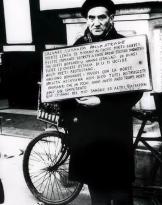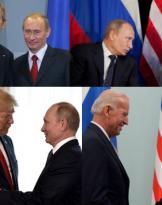The peace operations, in their various forms, have seen the addition of numerous military personnel belonging to the police corps. The growing importance of this staff in the Peace Support Operations (PSO) has ensured that in addition to the UN also other international organizations such as NATO, OSCE, EU, etc. use this type of staff.
Police in peace support operations perform three tasks:
- monitoring of the police forces and observation of the local situation;
- carrying out an active police and public order role;
- training of local police forces.
The effectiveness of the role played by the police is to be considered within the overall framework of the mission they are part of and in compliance with the objectives set by the client. Generally the observation missions have a prevalence of members of the civil police, while those of maintenance of public order see a greater number of members of the gendarmerie forces, this by mere custom. Not infrequently the UN, which has an Anglo-Saxon cultural approach, prefers the civil police to the gendarmerie in the missions.
 The use of police on missions abroad is not only a thing of today but goes back a long time. Leaving aside the colonial experiences, where the police planted their own staff in the administered territories, the first experience in the modern era occurred on the occasion of the United Nations mission in the Middle East in 1948, during the first Arab-Israeli war, where 50 agents of the neo established UNSSS (UN Safety and Security Service) were deployed in Palestine to assist UN observers in controlling vehicular and commercial traffic, so that the parties did not receive supplies of weapons and equipment. They were also involved in armed clashes and later assigned to the surveillance of UN installations.
The use of police on missions abroad is not only a thing of today but goes back a long time. Leaving aside the colonial experiences, where the police planted their own staff in the administered territories, the first experience in the modern era occurred on the occasion of the United Nations mission in the Middle East in 1948, during the first Arab-Israeli war, where 50 agents of the neo established UNSSS (UN Safety and Security Service) were deployed in Palestine to assist UN observers in controlling vehicular and commercial traffic, so that the parties did not receive supplies of weapons and equipment. They were also involved in armed clashes and later assigned to the surveillance of UN installations.
It takes a few years to find in 1964 a police contingent made up of about 50 operators (photo) in the UN mission in Cyprus (UNFICYP).
From the 80s onwards, the UN missions have seen an ever greater integration into the local fabric and for this reason the constant presence of police personnel. The growing complexity of the missions has meant that the various police tasks (observation, public order and training) overlap one another, as has happened in Cambodia, El Salvador, Haiti, Bosnia, Guatemala, Somali, Rwanda, etc. .
If it is true that the new concept of peacekeeping born from the experience of Somalia or UNOSOM II, we can affirm that the operational theater of the former Yugoslavia has been a school for international police operations.
 In the Balkans there has been a massive use of police personnel within the various UN missions. This was necessary because the state realities, which were created from the breakdown of the Yugoslav Republic of Tito, established police forces within them. Control of the territory during an ethnic conflict such as Yugoslavia required the deployment of several police officers under the UN flag. However, the very unstable military and political framework made the work of these policemen ineffective, even if their presence avoided much harassment against the various ethnic minorities. On the contrary in Macedonia thanks to the more stable local situation, the police contingent managed to carry out an effective monitoring on the forces of Scopjie.
In the Balkans there has been a massive use of police personnel within the various UN missions. This was necessary because the state realities, which were created from the breakdown of the Yugoslav Republic of Tito, established police forces within them. Control of the territory during an ethnic conflict such as Yugoslavia required the deployment of several police officers under the UN flag. However, the very unstable military and political framework made the work of these policemen ineffective, even if their presence avoided much harassment against the various ethnic minorities. On the contrary in Macedonia thanks to the more stable local situation, the police contingent managed to carry out an effective monitoring on the forces of Scopjie.
The Dayton Accords revived the "UN police". The UNMIBH (UN Mission Bosnia-Herzegovina) saw the creation of the IPTF or International Police Task Force with 2000 deployed agents, which simultaneously with the IFOR started an organic program of surveillance and training of the local police forces, and with a strong operational protection during all the electoral moments of the country.
Subsequently, the UN mission in Haiti saw the participation of police personnel between November '90 and January '91, with the task of controlling the local police forces during the elections held in this period. In Haiti on a mandate from the UN in September 94, an American-led multinational force took control of the island, succeeding in establishing a legitimate government and overthrowing the previous military junta.
 Next to the military contingents there was the International Police Monitors (IPM) with a staff of 800 US-led agents from 20 nations who initiated a recruitment and training program for a new local police force. Note that Canada, Italy and Germany refused to participate in the IPM.
Next to the military contingents there was the International Police Monitors (IPM) with a staff of 800 US-led agents from 20 nations who initiated a recruitment and training program for a new local police force. Note that Canada, Italy and Germany refused to participate in the IPM.
The UN missions that alternated in El Salvador and Guatemala have seen civil-pol play a fundamental role in the training of the local police, according to ethical and professional criteria for the protection of human rights, also absorbing personnel from the guerrillas.
The UN mission in Rwanda attempted to set up an interethnic police but this was impossible due to the hostility of the Kigali government.
In the past, the EU has also conducted international missions of both a military and police nature, an example for all the mission in Albania. Although not part of the European Union, the Tirana government asked for support for the reconstruction of its police in 97. Thus was formed the Multinational Advisors Police Element (MAPE) made up of about 100 units from 15 countries. The mission that was able to count on funding from the European community meant that in Albania it was possible to reopen the Police Academy in Tirana, and later the schools in Durres, Shkodra and Valona.
 Italy has always participated in police missions mainly supplying personnel from the Carabinieri, in 97 the Foreign Affairs Commission of the Chamber expressly requested that for future missions the contingents were also made up of personnel from the State Police and Guard Finance, in line with what has already been done by other nations (France, Spain and Portugal), which have within them military and civilian police forces. This directive is very often disregarded, to cite a case unknown to many, the UN set up UNGCI in '91 to be employed in Iraq, Italy declared itself willing to participate by sending 50 agents of the State Police, but the proposal was not followed up.
Italy has always participated in police missions mainly supplying personnel from the Carabinieri, in 97 the Foreign Affairs Commission of the Chamber expressly requested that for future missions the contingents were also made up of personnel from the State Police and Guard Finance, in line with what has already been done by other nations (France, Spain and Portugal), which have within them military and civilian police forces. This directive is very often disregarded, to cite a case unknown to many, the UN set up UNGCI in '91 to be employed in Iraq, Italy declared itself willing to participate by sending 50 agents of the State Police, but the proposal was not followed up.
In Italy currently the police forces with civil status and hierarchically constituted are: the State Police and the Penitentiary Police, but we must also take into account the dissolved State Forestry Corps in the case of missions.
The State Police was employed abroad for the first time in the “Arcobaleno” mission, a humanitarian initiative mission, with the initial objective of direct assistance to about 25.000 Kosovar refugees in organized structures. The peculiarity of this mission that emerges from the acts of the Senate is that the government thought well not to give an operational mandate, nor rules of engagement, or better still the policemen should not have used the weapons provided in any way.
Another international mission that sees the presence of PS personnel are and have been: UNMIK, EULEX, EUPM, EUPOL PROXIMA, EU COPPS.

It is also fair to mention the blood contribution given to the missions by the staff of the Italian Police or the chosen agent Marco Gavino (in the photo on the left) who died following a plane crash while returning from a license in Italy on 12 November 1999 and the superintendent Francesco Niutta (in the photo on the right) who died following a road accident on the road that would have brought him to Sarajevo, falling with his off-road vehicle from an overpass on 20 November 2003.
The Flag of the State Police was awarded the UN bronze medal "In the service of peace" on February 23, 2002, for the excellent results obtained in the mission.
Other contingents of the Italian civil police were that of the Penitentiary Police employed in Kosovar territory from 2000 to 2009 both in UNMIK and in EULEX. The goal of the prison staff was to support the activity of some prisons, contributing to the training of staff, to the management of the safety of the prison in Dubrava, Peja and Gnijlane, by sending experts in administration, penitentiary health and alternative measures to detention, but also the coordination of some services such as translations.
The dissolved State Forestry Corps was employed as a police force during the mission Rainbow, currently following the merger with the Carabinieri, it is used for its specific tasks in Kosovo and in other operational theaters where the weapon is deployed.

Photo: author / Queensland Police Service / web












